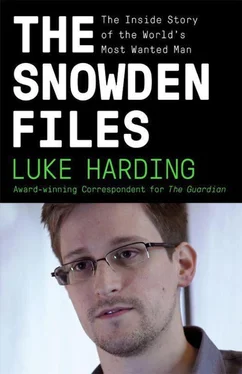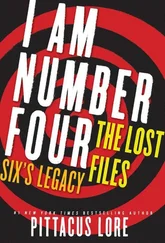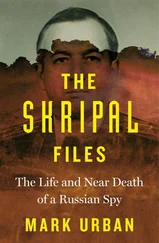When the plane landed in Moscow at 5pm local time, Russian security vehicles were waiting. From Vietnam, Ecuador’s foreign minister Ricardo Patino tweeted that Snowden had sought political asylum in his country. But where was he? The news agency Interfax announced that Snowden was booked on an Aeroflot flight to Cuba the following day. He appeared to be holed up in Moscow’s transit zone. An Aeroflot source claimed – wrongly, it would turn out – he was staying in a small overnight hotel ‘capsule’ room in Terminal E.
What did the Kremlin know of Snowden’s arrival? President Putin claimed that he was informed of Snowden’s presence on a Moscow-bound flight just two hours before he landed. He observed that by cancelling his passport the Americans had made an elementary mistake in tradecraft, making his onward flight options impossible.
In characteristic fashion, mixing sarcasm and scarcely sincere ruefulness, Putin labelled Snowden ‘an unwanted Christmas present’. The Russian authorities did seem to have been genuinely surprised by Snowden’s eventual stranding in Russia. The normally reliable Kommersant newspaper, however, would claim that Snowden had secretly spent two days at the Russian consulate in Hong Kong. Snowden himself vehemently denies this.
Putin’s own attitude towards whistleblowing activities was undoubtedly negative. He later described Snowden as a stranniy paren – a strange bloke. ‘In effect, he condemned himself to a rather difficult life. I do not have the faintest idea what he will do next,’ he said.
Putin was a KGB officer who served in communist East Germany in the 1980s, and was the former head of the KGB’s main successor agency, the Federal Security Service or FSB. He took a dim view of traitors. In 2006 the renegade FSB officer Alexander Litvinenko died in London after drinking radioactive polonium in what the British government believes was a Russian state plot. The KGB’s spy code of omerta was absolute.
After 13 years in power, Putin was paranoid, mistrustful, prone towards conspiratorial explanations at home and abroad, and more convinced than ever of his own unparalleled abilities. He viewed relations with the west, and the US especially, through the prism of Soviet xenophobia. Given his KGB academy training, he must have wondered whether Snowden was an American deception exercise, a classic cold war ploy.
But in reality, Snowden really was a gift. He presented a perfect opportunity for the Kremlin to highlight what it regarded as Washington’s double standards when it came to human rights, state snooping and extradition. Putin must also have enjoyed the frisson of superpower parity with the United States. The idea underlay his view of a resurgent Russia, an oppositional pole to the US in global affairs. The Americans would have to beg to get Snowden back!
Within hours of Snowden touching down, pro-Kremlin voices were busily suggesting that the Russian Federation should offer him asylum.
The next day, the media circus resumed at Sheremetyevo. Several enterprising reporters had bought flight tickets and were scouring the transit zone for any sign of Snowden; some camped out there for days. Others obtained Cuban visas and booked onto the same Aeroflot flight to Havana. It was generally assumed that Snowden would be on the plane.
The Guardian ’s Moscow correspondent Miriam Elder waited at the gate to get on. Something was afoot. The Aeroflot staff were even ruder than usual. They stopped TV crews from filming the plane through a window. Burly security guards hung around.
Elder failed to get on the flight: she didn’t have a visa. Other journalists trooped on board and walked the aisles hunting for the refugee. Snowden and Harrison were booked into seats 17A and C, adjacent to the window. Jussi Niemeläinen, a correspondent with the Finnish newspaper Heisingen Sanomat , was across in 17F – close enough perhaps to grab a few words with the world’s most wanted man, and to secure a glorious front-page story. Minutes before take-off there was still no sign of Snowden. His seat was empty. The last four passengers were expected.
And then a whisper spread across the aircraft: ‘ Ne uletayet, ne uletayet! ’ – Russian for ‘not flying’. Snowden wasn’t coming. Some of the Russian journalists broke into a chant of ‘champagne trip, champagne trip’. The purser solemnly announced that the 12-hour flight to Cuba was non-alcoholic: soft drinks would be served. ‘You could only laugh,’ Niemeläinen said. ‘During the journey I watched The Muppets . It felt right for the occasion.’
Snowden was in extra-territorial limbo. Over the next few weeks the Kremlin would maintain the fiction that Snowden had not entered Russian territory – he didn’t have a Russian visa, after all – and that they had little to do with him. At the same time Moscow would milk his stay for all it was worth. Snowden’s location was a mystery. In theory he remained in Sheremetyevo’s transit zone. But no one could find him there. Probably, the authorities regarded ‘transit’ as an elastic concept, a sort of wiggly line that could, if necessary, be stretched across a map. Perhaps he was in the heavily guarded airport Novotel. Or somewhere else.
In the wake of Snowden’s arrival, US–Russian relations plunged. One of Obama’s foreign policy priorities had been to ‘reset’ ties with Moscow; these had grown strained under President George W Bush following the war in Iraq and Russia’s 2008 invasion of US-backed Georgia. The ‘reset’ was already in trouble, with disagreements over a plethora of issues including Syria, the US’s missile defence plans in central Europe, recriminations over NATO’s military action in Libya and the imprisonment in the US of the Russian arms dealer and alleged former KGB agent Viktor Bout.
Obama had tried to cultivate President Dmitry Medvedev, Putin’s temporary successor, a less hawkish figure. In fact, Medvedev was never an autonomous entity. In 2011 Putin elbowed him aside and returned as president for the third time. In a leaked cable, one US diplomat reported that Medvedev played Robin to Putin’s Batman. The comparison irritated Putin. It was, he said, an example of American arrogance.
Now Obama called for Russia to hand Snowden over. Russia’s veteran foreign minister, the wily Sergei Lavrov, parried by saying that Snowden wasn’t actually ‘in’ Russia and had never crossed the border. Putin ruled out an extradition of Snowden. He pointed out that there was no bilateral treaty with the US. He also claimed – implausibly – that Russia’s security services had no interest in him. Two days later Obama announced that he wouldn’t expend geopolitical capital in getting Snowden back.
Behind the scenes, however, the administration was doing everything it could to close down Snowden’s onward journey: pressuring allies, placing him on no-fly lists, cajoling the South Americans. Having initially been supportive of his asylum claim, Ecuador grew lukewarm. US Vice President Joe Biden called Correa, laying out what the consequences would be if Quito took him in. Correa revoked Snowden’s safe-conduct pass, saying it had been issued in error. Ecuador also seemed exasperated with Assange, with its ambassador in Washington noting that WikiLeaks seemed to be ‘running the show’. On 30 June, Snowden applied for asylum in 20 countries. They included France, Germany, Ireland, China and Cuba.
The following day, 1 July, Snowden issued a statement via WikiLeaks, the first of several. He said he had left Hong Kong ‘after it became clear that my freedom and safety were under threat for telling the truth’, and thanked ‘friends new and old, family and others’ for his ‘continued liberty’.
Snowden then attacked Obama for using Biden to ‘pressure the leaders of nations from which I have requested asylum to deny my asylum petitions’. The president had previously promised not to get involved in any diplomatic ‘wheeling and dealing’. This claim now looked like something of a lie.
Читать дальше












